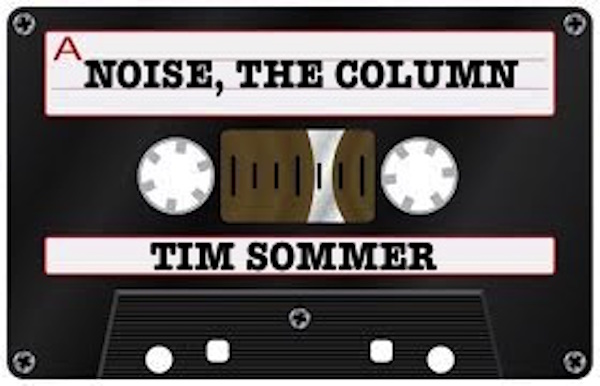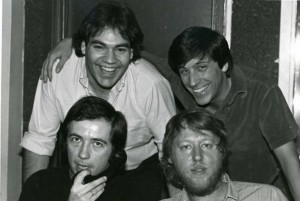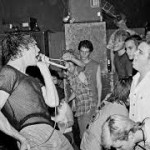Today, we talk about two wars. Both challenge essential freedoms we have long taken for granted.
In troubled times, both globally and personally, we rely on one factor to provide hope and establish stability: our belief in the essential humanity of man. Often, there’s another factor that provides comfort: music, and our belief in the essential humanity of the people who make and love music.
Listening to music, loving music, gives us common ground with our fellow man; it means that not only are we engaged in the special energy and beautiful empathy implied in songs new and old, but it is also implies that we understand, implicitly or explicitly, that
the sound of American music is the sound of America’s disenfranchised, empowered by song.
But first, let’s talk about War.
We have always believed in the humanity of the common man, even if we have disparaged the humanity of their leaders. We believed that when we looked the enemy in the eye, we would see men and women like ourselves; we would see our brothers, our friends, our fathers, the sons of mothers. We hated the leaders, not the led.
We believed that the “enemy” was a government, misguided or cruel, but the armies were made of men and women much like ourselves. This is the essential faith we have in humankind, the one that compels us to not just fight, but to also rebuild: we separate Hitler from the Germans, the Kaiser from his soft-faced armies; behind the uniforms, we see men who dream of football, Christmas, and girls back home. We separate the cold, didactic hysteria of Mao or Stalin from the millions who suffered underneath them; we believe these ordinary citizens dream of freedom, dream even of the tabula rasa once implied by the American dream, just like we do. We separate leaders from the conscripted, and we hold on to the truth that we are all born the same, even if the flags that fly over our cradles are different.
This kind of thinking sustains us, leads to beautiful moments of history like the 1914 Christmas Truce and the 1948 Berlin airlift. More importantly, it makes us believe that war is an atrocity, an aberration, not the standard modus operandi of man. It even makes us believe that Lynyrd Skynyrd would probably defend the rights of Rosa Parks, but more on that shortly.
However (and this is a big goddamn ‘However’): The next war will be different. The men of ISIS have a core of belief absolutely alien to us; I am not here to either delineate or condemn their thinking – I will do neither, they are men, they are born of mothers, they are victims of indoctrination, deprivation, and oppression, just like us – but I will make some assumptions about the way they think: they are serving a fundamentalist belief that lies deep in their hearts, and does not come exclusively from the well-guarded sanctum of some governmental palace or limestone’d capitol. Their belief comes from the same part of their soul that compels breath, hunger, survival. They are not conscripts; we will be fighting an army where every soldier holds in their bosom the heart of a leader. We will be fighting the Borg. This idea is completely alien to us; we associate armies with pawns; but
when we fight ISIS, we will not be fighting pawns. We will be playing on a chessboard where every man is king.
So be fucking careful out there, okay?
Next: War, the cultural kind.
We have always believed in the good intentions of our pop stars, even if we have disparaged their corporate overlords or the excesses of their stardom. We have believed that we were all on the same “side,” regardless of musical taste; I mean, whether you were into (or in) Buffalo Springfield or Grand Funk Railroad, no one wanted to get drafted; whether you were Jeff Buckley or the Carpenters or Ice T (or one of their fans), no one wanted their head bashed in by a cop. The “establishment,” whether it was personified by Reagan, Nixon, Bush, or Thatcher, was a country without empathy; we, the children of rock, stood on opposite shores, observing and jeering at the “establishment.“
When we saw other members of the Fraternity of Music, long hairs, short hairs, pink hairs, and suede heads, we intrinsically believed we were seeing others who believed in the capacity of art and music to make peace, achieve equality, empower the disenfranchised. We assumed other members of this Fraternity stood for compassion, tolerance, and equality. The occasional affirmation of a right-leaning stance from a member of Generation Rock was considered an aberration.
So, here we are, dear reader, 778 words into this piece, and hopefully comfortable in the bosom of an idea or two, which I now recap: first, our general belief in the essential humanity of the Family of Man, the framework that has guided is through the centuries of war and reconstruction; and secondly, our general belief in the essential humanity of the Family of Pop, which made us see a lover of freedom in the face of every silky-haired singer and spiked-hair guitar-slinger.
Both ideas are no longer valid. Both can no longer sustain us.
Instead, we see the face of Kid Rock, and we see the face of ISIS.
Rock has been Kid Rocked. And this has happened at the worst possible time, just when we need to temper the extremist intolerance of the coming war with compassion and empathy.
Each group – ISIS and Kid Rock — fails to recognize that mercy and compassion is a great form of justice in and of itself.
And the highest, most ideal aim of government is compassion, and the highest aim of musicians and artists is to insure that compassion is enforced.
As I have stated before, everything about our culture of American pop – and I mean everything — originated with the disenfranchised people of our country; and every moment you listen to music (and every moment you create music), this genesis must be recalled, because this reinforces compassion and empathy. From Stephen Foster’s faux-slave songs to the modified Appalachian howls of Jimmie Rodgers and Hank Williams to the sex-calls of Elvis to the rhymes of Run DMC and all the manifold descendants of all these pioneers,
American music was the creation of those forgotten by the American dream: truck driving sons of Parchman convicts, the urban and rural poor, the immigrant Jews and Italians and Irish, all the people who had nothing and built America…they built American song, too, American pop, American rock’n’roll.
Every song you hear, whether it is the retching machinery of death metal or the most superficial EDM, contains the musical DNA of America’s bruised, insulted, exploited, poor, and oppressed.
The Buddha said that you should see the face of your mother in the faces of those who abuse you; at some point in the tumble of eternity, reaching eons into the past and unknown millennia into the future, everyone has been your mother. Likewise, every time you listen to a song, any song, you should see the faces of Ledbelly, or Big Mama Thornton, or Irving Berlin, or Lee Hayes, or Maybelle Carter, or any of the other citizens who turned their suffering into song, and translated oppression into joy.
There is zero room in the pop landscape for the racism and proto-fascist teabaggery of Kid Rock (who I will target specifically, as Ted Nugent is just a useless old windbag, grasping at the straws of the Fox News culture to sustain an income). I am tired of this shit. The stakes are too high.
We will fight the lack of humanity with humanity; we will fight hatred with the ubiquity of love; we will fight the ignorance of fundamentalist prejudice with the awareness of the common empathy of all humans of all sexes.
Jesus Christ I sound like a hippie.
And why not? We need them more than ever. Hippies, that is. Especially if they listen to Rudimentary Peni and the Mekons and not crappy jam bands.




